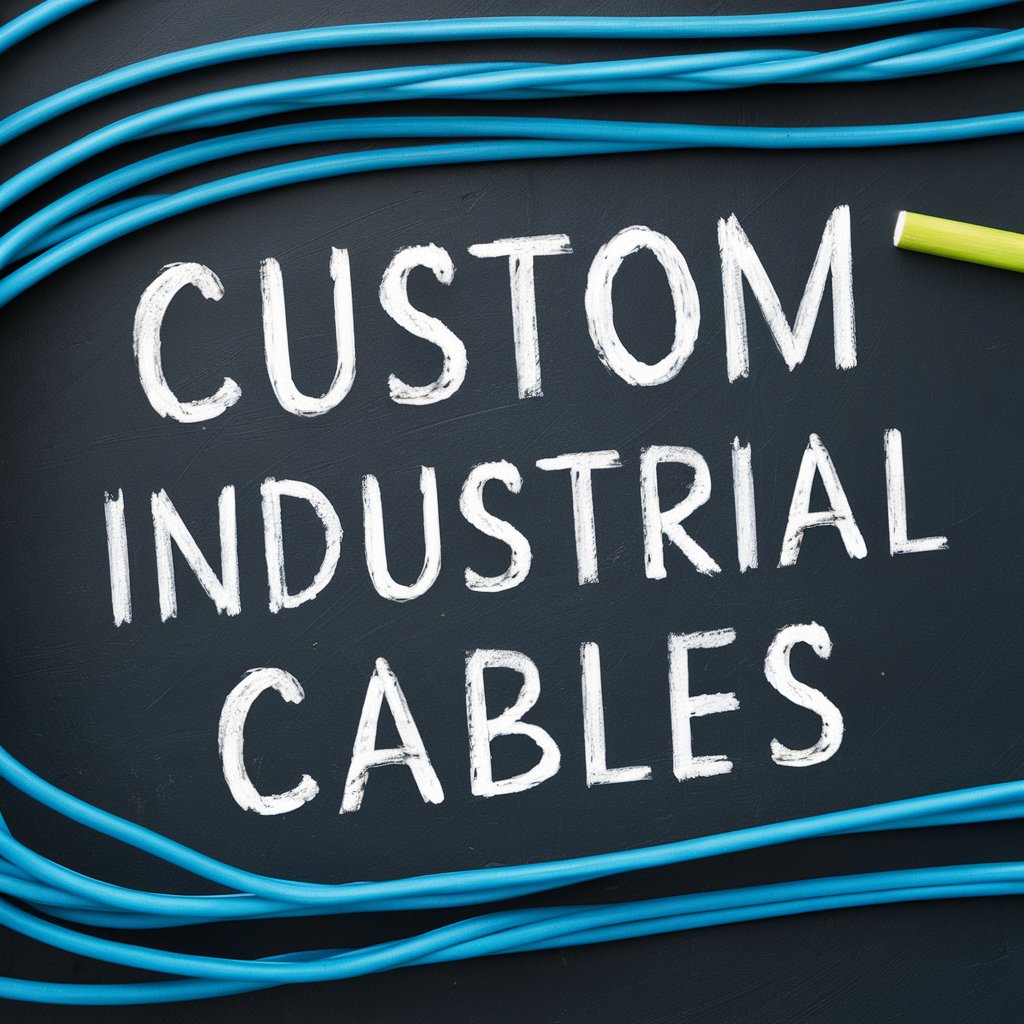Have you ever considered how vital industrial cables are in the daily operations of modern industries? Industrial cables are not just components; they are foundational to the infrastructure of various sectors, driving efficiency and innovation. This article explores how these specialized cables transform industries by enhancing performance, reliability, and adaptability.
Essential Role of Custom Industrial Cables
Tailored Solutions for Diverse Needs
Custom Industrial cables are not one-size-fits-all. Each industry has unique requirements that standard wires may need to meet. Custom cables are designed to address specific environmental challenges, power needs, and performance criteria. For instance, heavy manufacturing must withstand extreme temperatures, vibrations, and abrasions, while the telecommunications sector needs to ensure minimal signal loss over long distances.
Enhancing System Efficiency
They are optimized for the specific systems they serve, enhancing overall efficiency. Using materials and designs that are precisely tailored to the application’s needs minimizes energy loss and increases the reliability of power transmission. This optimization not only improves the performance of individual machines but also boosts the facility’s overall productivity.
Innovations in Cable Technology
Material Advances
The development of new materials has significantly impacted the performance of industrial cables. Innovations such as high-temperature superconductors and durable yet flexible jacketing materials like thermoplastic polyurethane (TPU) allow these to perform in previously challenging conditions. These materials help them withstand harsh chemicals, extreme temperatures, and physical wear, extending their life span and reducing maintenance costs.
Smart Cabling
With the advent of the Internet of Things (IoT), smart cables are becoming increasingly prevalent in industrial applications. These are equipped with sensors that monitor their health and environmental conditions, providing real-time data. This information can predict maintenance needs, prevent downtime, and even enhance safety by alerting to hazardous conditions before they cause failures.
Quality and Compliance
Adhering to Industry Standards
Custom cables must comply with stringent industry standards and certifications to ensure safety and performance. These standards vary by industry and region and encompass aspects like fire resistance, toxicity, and performance under environmental stressors. Compliance not only guarantees their reliability but also safeguards the industries that depend on them.
Rigorous Testing Protocols
They undergo rigorous testing protocols to ensure that custom cables meet the required specifications. These tests simulate extreme conditions and stress to guarantee they can withstand real-world industrial environments. Such thorough testing ensures that the final products are effective and reliable over their expected lifespan.
Impact on Industry Transformation
Driving Automation and Connectivity
As industries move towards greater automation and connectivity, the demand for reliable, high-performance cabling solutions increases. They are at the heart of this transition, providing the necessary infrastructure to support advanced robotics, automated production lines, and interconnected systems. These facilitate seamless data and power flow, which is crucial for efficiently operating computerized systems.
Supporting Green Initiatives
The push towards sustainability also influences the design and application of industrial cables. Custom cables that are more efficient and durable contribute to energy conservation and reduce the need for frequent replacements. Moreover, manufacturers are increasingly focusing on eco-friendly materials and production processes that lessen environmental impact.
Harnessing Global Trends
Embracing Globalization
The globalization of industry presents both opportunities and challenges for the custom cable sector. As businesses expand across borders, the demand for universal standards and interoperability increases. Manufacturers must adapt their products to meet international standards and requirements, enabling seamless integration into global supply chains and operations.
Adapting to Rapid Technological Change
Industries are continuously influenced by rapid technological advancements, requiring systems to adapt quickly. The agility to innovate in response to new tech trends—such as 5G technology, advanced automation, and renewable energy technologies—is essential for manufacturers. Providers must keep pace and anticipate future needs to stay relevant and competitive.
Challenges and Future Directions
Navigating Supply Chain Complexity
One of the challenges in producing custom cables is managing complex supply chains. The specificity of materials and components required for custom solutions often means sourcing from multiple suppliers, which can complicate logistics and quality control. Ensuring a sleek supply chain is crucial for meeting production deadlines and maintaining quality standards.
Advancing Cable Technologies
Looking to the future, the development of new materials and technologies, such as nanomaterials and enhanced conductive properties, promises to further revolutionize its capabilities. These advancements could lead to more efficient power transmission, enhanced data capacities, and more innovative and interactive cables than ever before.
Custom industrial cables are more than just links between power sources and machinery; they are integral components that drive industry modernization. By meeting specific industrial needs, facilitating technological advancements, and ensuring obedience with regulatory standards, they are setting the stage for a more efficient, connected, and sustainable industrial future. As industries keep evolving, the role of industrial cables in wiring the future will only grow, highlighting their significance in shaping the global industry landscape.




